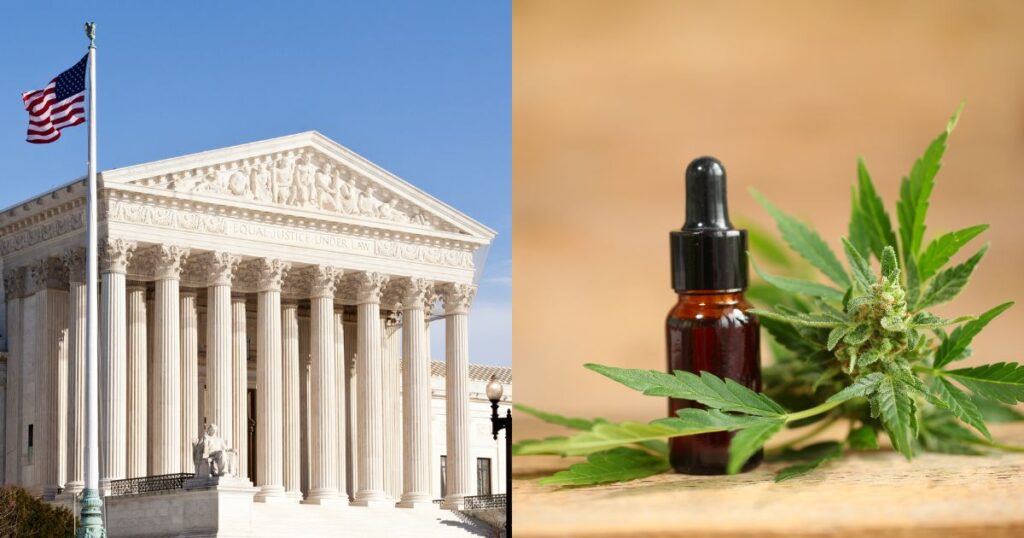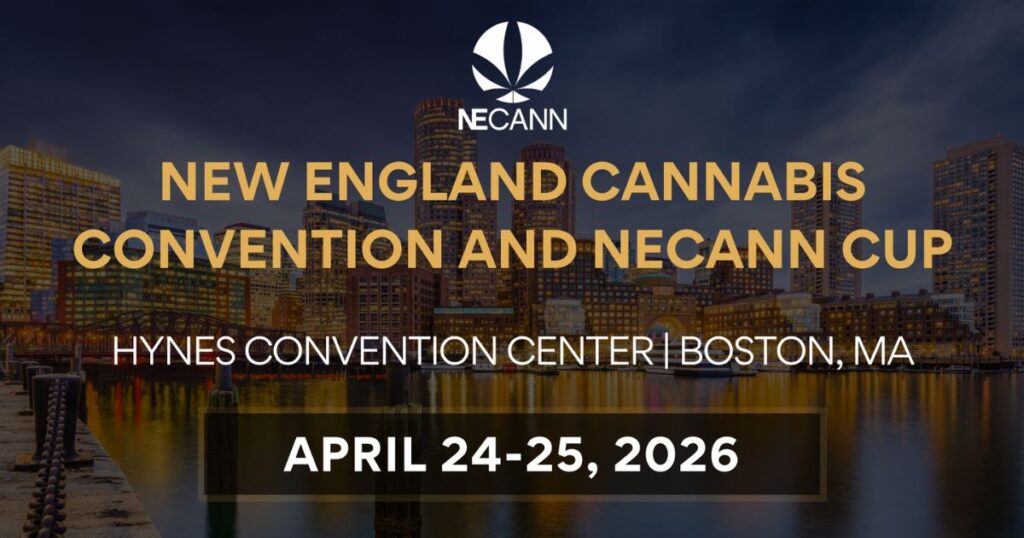On Wednesday, the U.S. Supreme Court delivered a decision involving a commercial truck driver and a CBD product marketed as THC-free. The case has drawn attention due to its implications for employment law, consumer rights in the cannabis industry. The 5-4 ruling allows the truck driver, Douglas Horn, to pursue claims against the CBD manufacturer under a federal law originally designed to combat organized crime.
Horn, a truck driver, had been seeking relief from chronic back and shoulder pain when he turned to a CBD tincture called “Dixie X,” advertised as containing no THC. Trusting this label, Horn unknowingly consumed THC from the product, later failing a routine drug test mandated by his employer. The failed test resulted in his termination, leaving him financially devastated and prompting him to take legal action.
The Supreme Court’s Decision on CBD Mislabeling Case
The Supreme Court’s opinion on the mislabeling of the CBD product allows Horn to continue his legal claims under the Racketeer Influenced and Corrupt Organizations (RICO) Act, as first reported by the ABC. Under RICO, plaintiffs can seek triple damages if they can prove their business or property was harmed by fraudulent or illicit activities. Horn argues that the mislabeling of the product constituted fraud, directly leading to his job loss—an injury he equates to business harm.
The Court was divided on the central issue of whether Horn’s termination qualifies as business harm under RICO’s definitions. Conservative justices, including Justice Kavanaugh, expressed hesitation to expand the reach of RICO to include employment-related injuries. They argued this could set a precedent for opening the floodgates to similar claims not originally covered under the law, disrupting its intent.
On the other hand, justices like Elena Kagan argued that employment loss was inherently tied to economic harm and, therefore, falls under the protections RICO provides for business damages. This debate highlights the legal gray areas surrounding CBD products after the 2018 Farm Bill and employment protections, which remain tricky to define as cannabis continues to grow in acceptability and legality.
The decision from the ruling does not settle whether the specific product in question was indeed mislabeled or if Horn’s ultimate claims against the manufacturer will result in damages. However, the ruling does allow litigation to proceed in lower courts, keeping the focus on the nuanced intersection of federal laws governing consumer protections and systemic gaps in cannabis product regulation.
A Broader Crisis in CBD Regulation
This lawsuit serves as a reminder of the regulatory inconsistencies currently plaguing the cannabis industry. Although cannabidiol (CBD) is federally legal when derived from hemp containing less than 0.3% THC, the vast majority of CBD products exist in a quasi-regulated market. Mislabeling issues, whether intentional or accidental, are not uncommon. False THC-free claims in particular place unsuspecting consumers, especially those subject to regular drug testing, at substantial risk.
Horn’s case shows the need for stricter guidelines and transparency in the labeling and marketing of CBD products. Misrepresentation doesn’t just harm consumers—it jeopardizes the credibility and growth potential of the entire cannabis industry. This lawsuit has given the Supreme Court an opportunity to demonstrate how federal courts interpret liabilities of manufacturers within a quickly evolving cannabis industry.
Implications for Employers and Consumers After Supreme Court CBD Ruling
For employers, this case may prompt reevaluation of drug-testing policies and an examination of how THC contamination in CBD products complicates workforce management. The legal availability of CBD has made traditional approaches to workplace drug testing increasingly controversial. Employers face the challenge of enforcing safety-sensitive regulations while acknowledging that residual traces of THC from legal CBD use could unfairly harm employees. Some experts suggest crafting more nuanced drug-testing practices that take into account factors like impairment and dosage while still adhering to legal mandates.
For consumers, this ruling is a reminder to exercise caution when purchasing CBD products. While market trends show an increasing reliance on cannabis-based remedies, potential buyers must closely research manufacturers, seek lab-tested products, and scrutinize ingredient labels. Horn’s lawsuit just goes to show that trust in mislabeled products can lead to serious consequences, from job loss to legal battles.
RICO Act Reflections and Future of the Case
The ruling also brings renewed attention to the reach of the RICO Act, enacted in 1970 to dismantle organized crime operations. Over time, its scope has gradually expanded to include cases of corporate fraud and consumer protection issues. Horn’s case is an even further evolution in the application of RICO. By framing product mislabeling as an act of alleged fraud causing harm to his employment, the case may transform how RICO claims relate to emerging industries such as CBD.
A ruling in favor of Horn at the lower courts could significantly impact manufacturers, forcing them to adopt stricter compliance measures for accurate labeling. This may drive up production costs as companies ensure their products meet both consumer expectations and regulatory standards. However, improved transparency would ultimately help build consumer trust and stabilize the transition from cannabis prohibition to normalized, legal use.
Additionally, this case once again highlights a fundamental disconnect between federal and state cannabis laws. While some states have embraced the legalization of medical and recreational cannabis, federal restrictions on THC remain a regulatory hurdle. This lack of alignment creates confusion not only for manufacturers but also for employers and consumers.
Douglas Horn’s legal battle signals a broader call for accountability within the hemp/cananbis industry and aims to set standards for ethical practices that prioritize safety and trust. The outcome of this case will likely serve as a benchmark for future lawsuits and provide guiding principles for the responsible development of CBD products across the United States.























